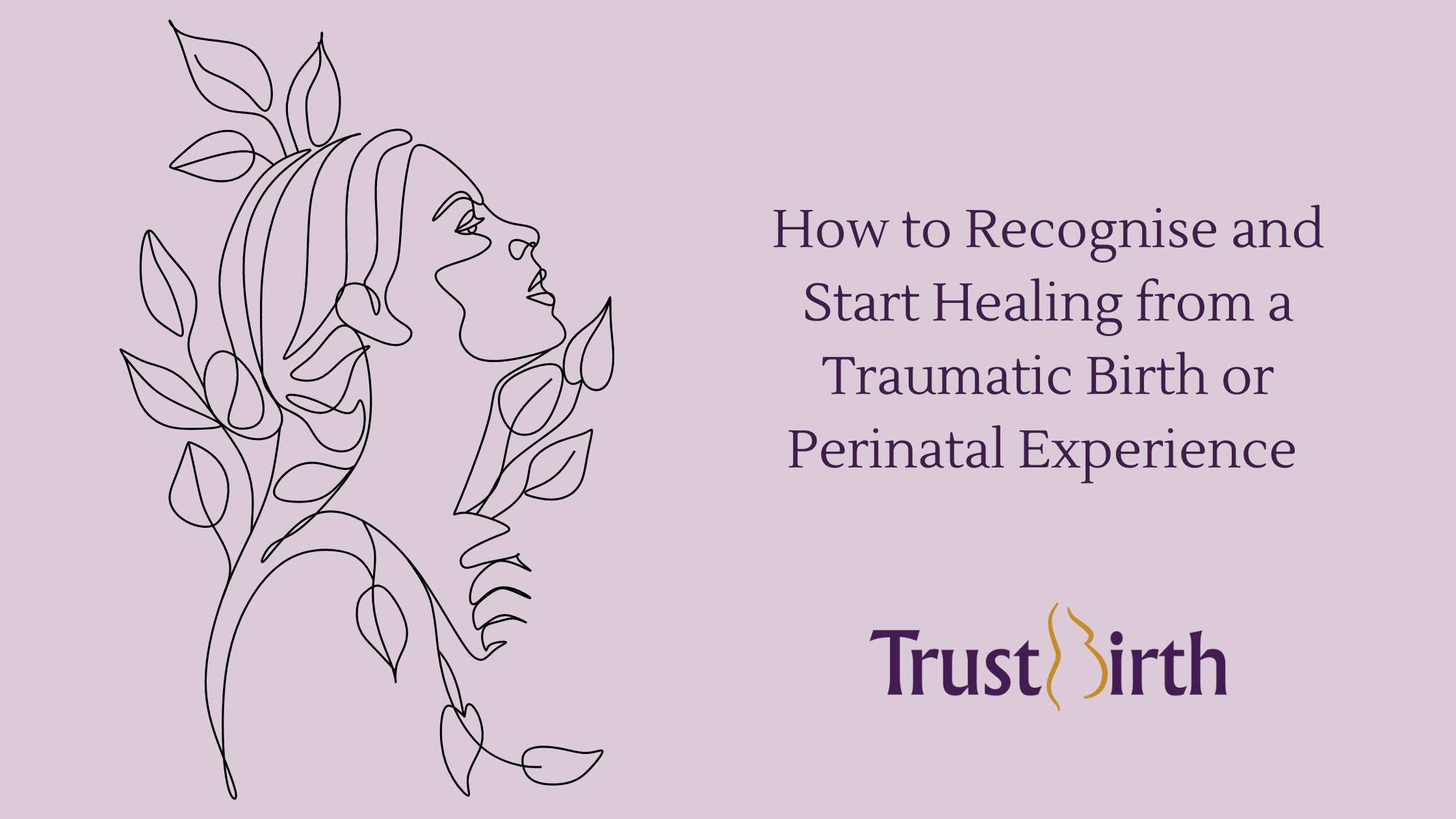
Having a baby is an amazing life-changing event that can, and should, bring immense joy and happiness to a family. However, not all birth experiences are positive. For some women and their partners, the birth of a child is a traumatic experience that can leave lasting emotional, psychological and, sometimes, physical scars. The aftermath of a traumatic birth can be debilitating and overwhelming, but recovery and healing is possible.
In this short blog, I discuss how to recognise some of the signs that you might be experiencing symptoms of birth trauma and some ways to start to recover from birth and other perinatal trauma. “Perinatal trauma” refers to the period surrounding and encompassing birth. This includes trauma during conception (e.g. IVF), the antenatal and postnatal periods, the birth and also includes feeding trauma.
Birth trauma can occur for a variety of reasons. For some women, it may be due to unexpected complications during the birth. For others, it may be due to a difficult labour that left them feeling helpless and out of control. In some cases, birth trauma may be caused by medical interventions that may or may not have been necessary for the safety of the woman or baby, but left the woman feeling violated or traumatized. Frequently, perinatal trauma is caused by the way a woman was treated or made to feel by those providing care during this period. Not feeling heard, valued or respected during this transformative experience can leave deep psychological wounds.
Whatever the cause of the trauma, it’s important to recognise the signs and symptoms of perinatal trauma so that you can begin the recovery process.
Some common signs and symptoms of childbirth trauma include:
- Flashbacks or nightmares about the birth
- Feeling detached from your baby or struggling to bond with them
- Feeling unusually anxious, frequently tearful, depressed, or angry
- Hypervigilance
- Avoiding anything related to childbirth, including seeing a doctor or talking about the birth, even avoiding friends and family who have recently had a better, non-traumatic experience
- Feeling guilty or responsible for what happened during the birth
- Physical symptoms such as pain, discomfort, or difficulty with sexual activity
Sometimes these symptoms will resolve themselves. They are our brains way of keeping us safe. If you are experiencing any of these symptoms for longer than about 6-8 weeks then you may need to seek help from a healthcare provider or a therapist who is trained to deal with birth and perinatal trauma. They can help you develop a plan for recovery that is tailored to your specific needs and experiences.
There are multiple different healing modalities that can be helpful. You could seek out help from a 3 Step Rewind Practitioner, a Thought Field Therapy (TFT) Practitioner or a Havening therapist. Your GP might recommend a course of Cognitive Behavioural Therapy or Eye Movement Desensitization and Reprocessing (EMDR) if you are diagnosed with Post Traumatic Stress Disorder.
One of the first steps in recovering from a traumatic birth is to acknowledge what happened and how it has affected you. This can be a difficult and emotional process, but it’s an important part of the healing journey. Talk to your partner, family, or friends about your experience, or seek out a support group of other women who have experienced childbirth trauma. This can help you feel less alone and give you a safe space to share your feelings. Some people find that writing down their experiences can be helpful, either in the form of an account of what happened or as a journaling exercise, looking at what they are feeling and why.
It may be helpful to get a copy of your maternity notes, including the labour notes to help you make sense of what has happened. This could leave you with more unanswered questions and this is where a birth exploration session or debrief could be very helpful. These can be arranged with an independent person or via the hospital who provided you maternity care.
Possibly the most important step in recovery is to practice self-care and self-love. This may include things like getting enough rest – not easy with a new baby – but important nonetheless, eating a healthy diet, and engaging in activities that you enjoy. It may also include things like meditation or yoga, which can help you relax and reduce stress. Being kind and compassionate to ourselves, as we would a dear friend in the same position, is a good starting point.
Take care,
Catherine


Recent Comments